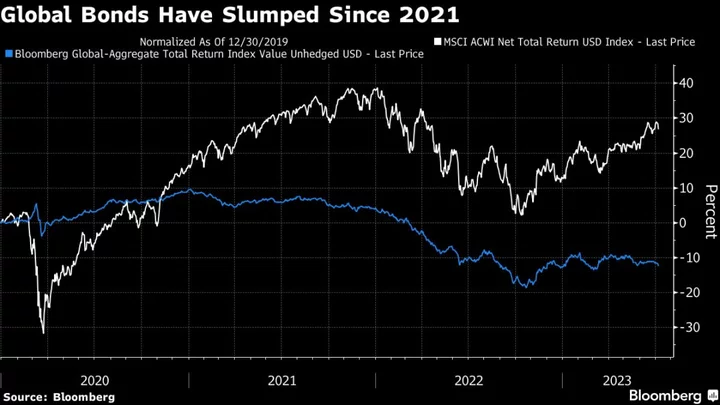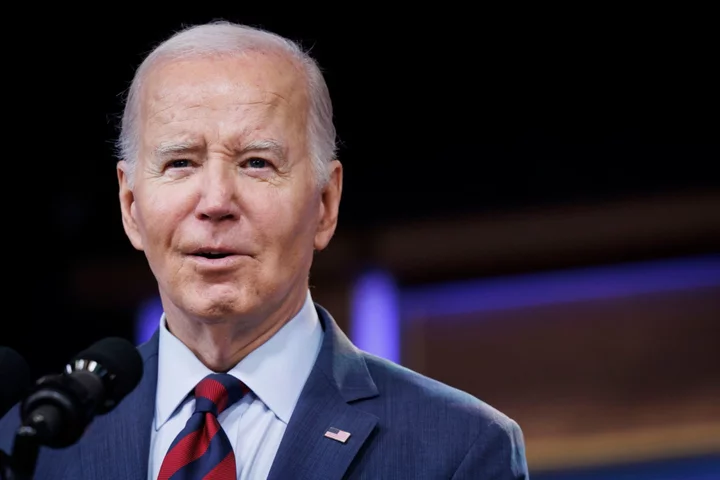The world’s sovereign investors are seeking to boost investment in bonds as yields rise, while a freeze on Russian assets has increased their demand for gold, Invesco Ltd. said in an annual report.
The survey covering 85 sovereign wealth funds and 57 central banks collectively managing about $21 trillion in assets showed that while inflation remains the most significant risk, many now intend to increase bond allocations, especially emerging-market and high-yield.
Gold is also favored as inflation hedge, with a significant proportion of central banks expecting to buy more of the precious metal over the next three years, the report said.
This points to support from sovereign investors after the bond market was hammered by rising expectations of a further tightening in monetary policy. Fixed income globally has eked out returns of just 0.4% so far this year compared with gains of around 13% for stocks.
“Some investors reported buying as much fixed income as possible within existing asset allocation limits, and were considering revising their framework to accommodate the new interest-rate environment,” the Atlanta-based fund manager said in the report.
Sovereign wealth funds reported average losses of 3.5% in the year to December 2022, the first time they’ve lost money since Invesco started the survey in 2013, it said. That’s as soaring inflation hit both bond and stock prices.
“Investors are now saying, I can probably get a very good risk-return profile from re-tilting some of my fixed income” to get yields of 4% or 5%, Rod Ringrow, London-based head of public institutions at Invesco, said in an interview.
Within bonds, 74% of sovereign wealth funds ranked emerging-market and high-yield notes as attractive, while only 34% saw distressed debt favorably. Invesco also “observed a strong appetite” for private credit funds, at 47%, with the funds emphasizing the favorable risk-return profile of the asset class.
Read: Private Credit and Hedge Funds Flooded as Banks Dump Loans
Regarding gold, “a substantial percentage of central banks are concerned about the precedent set by the US freezing of Russian reserves, with the majority (58%) agreeing that the event has made gold more attractive,” the report said.
Here are some more key points from the survey:
- Public-sector investors’ stance on stocks has improved, with a net 15 percentage point of respondents planning to increase equity holdings, up from a net 1 percentage point last year.
- India stayed as their top pick in emerging markets, having dethroned China for the first time last year.
- Central banks generally agree that there is no clear alternative to replace the US dollar as the world’s reserve currency.
- Their views on the yuan turned less favorable, with 58% now disagreeing with the view that it will achieve a true reserve currency status within five years, doubling from 29% last year.









